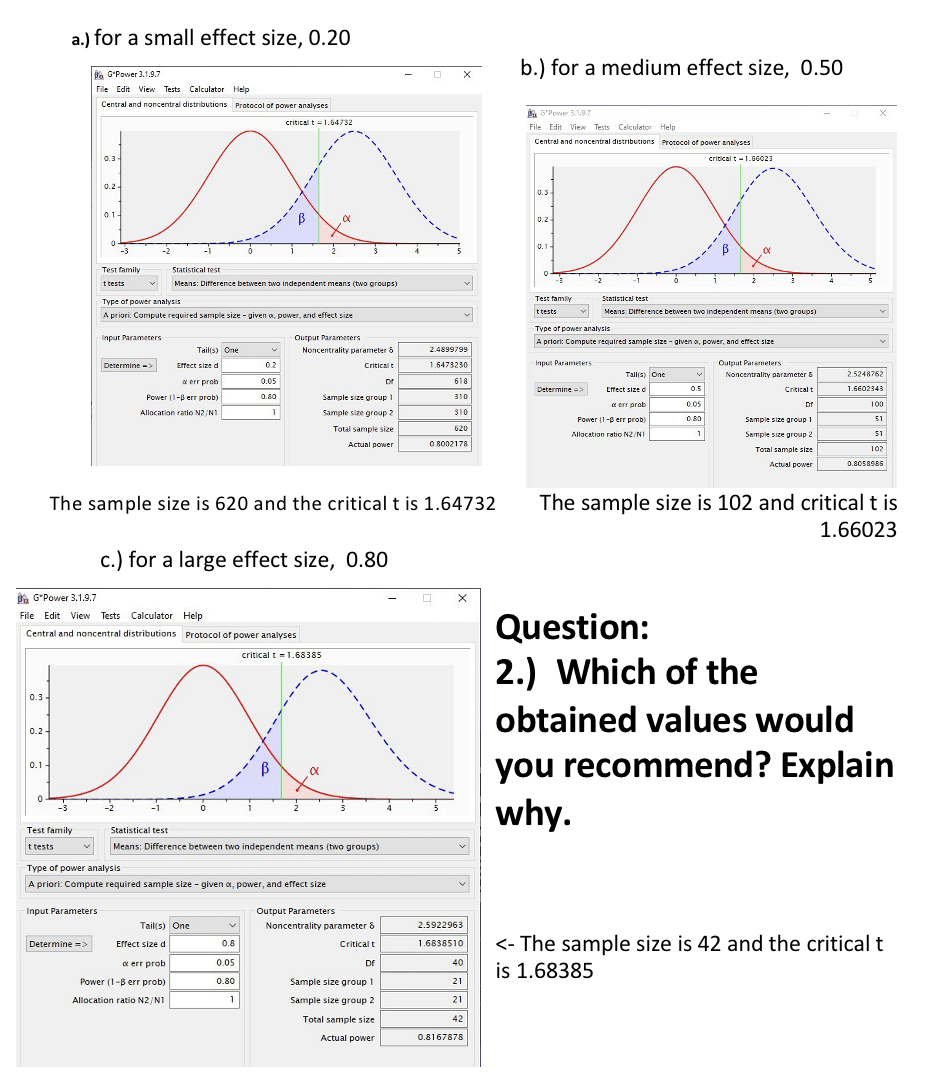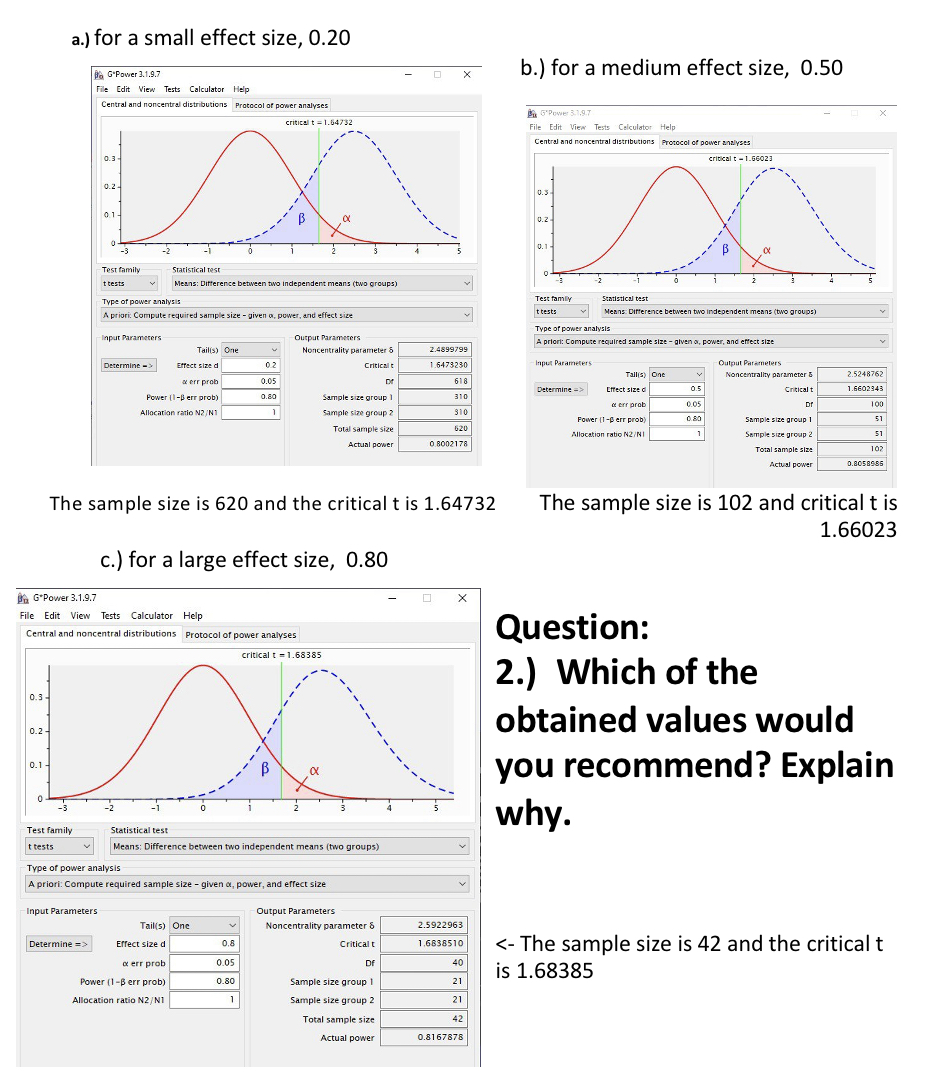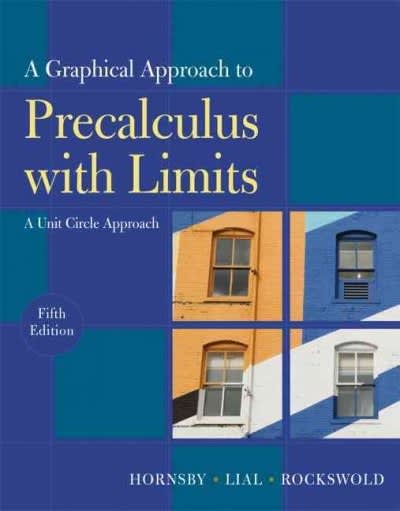Answered step by step
Verified Expert Solution
Question
1 Approved Answer
a.) for a small effect size, 0.20 tra G.Power 1.1.9.7 X b.) for a medium effect size, 0.50 File Edit View Tests Calculator Help Central


Step by Step Solution
There are 3 Steps involved in it
Step: 1

Get Instant Access to Expert-Tailored Solutions
See step-by-step solutions with expert insights and AI powered tools for academic success
Step: 2

Step: 3

Ace Your Homework with AI
Get the answers you need in no time with our AI-driven, step-by-step assistance
Get Started


